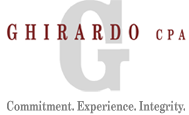California Tax Update
/California Mandates Electronic Payments for Certain Individuals For tax years beginning on or after January 1, 2009, individual taxpayers will be required to make their tax payments electronically if:
- An estimated tax payment is made for more than $20,000,
- A payment with an extension request is made for more than $20,000, or
- An original return is filed reporting a tax liability of more than $80,000.
Note that these provisions do not apply to 2008 tax return payments made in 2009. If the first estimated tax payment for 2009 is included with an extension payment for the 2008 tax return, then the first payment required to be filed electronically will be the one due June 15, 2009.
Once a taxpayer becomes subject to the electronic payment requirement, all future payments regardless of amount, type, or year, must be paid electronically. Failure to comply with the electronic payment requirement will trigger a 1% penalty on the amount of the required payment.
Note that these provisions apply only to individual taxpayers. Fiduciaries, estates and trust are not required to make electronic payments.
California Raises Threshold for Required Individual Estimated Tax Payments
For tax years beginning January 1, 2009, the threshold for required estimated tax payments is increased to $500 (from $200) for individual taxpayers filing single or married/RDP filing joint. The threshold is increased to $250 (from $100) for those who are married/RDP filing separate. If an individual taxpayer’s actual tax (after withholding and credits) for the preceding year or estimated tax for the current year is below these thresholds, then estimated tax payments are not required.
California Removes Safe Harbor for Estimated Payments
For tax years beginning on or after January 1, 2009, the “safe harbor” rule will no longer apply to individual taxpayers with adjusted gross income equal to or greater than $1 million dollars ($500,000 for married/RDP filing separately). Affected taxpayers will be required to pay an underpayment penalty for any quarterly estimated tax payment that falls short of the required percentage of the total taxable income for the subject tax year.
Note that for large corporations, those with taxable income of at least $1 million, the “safe harbor” rule had already been eliminated in prior years. For all other taxpayers the “safe harbor” rule continues to apply. This rule exempts the taxpayer from underpayment penalties if the estimated tax payments equal or exceed the prior-year tax liability.
California Accelerates Individual & Corporate Estimated Tax Payments
For tax years beginning on or after January 1, 2009, the required estimated tax payments for individual taxpayers and corporations will be 30% for the first and second quarters and 20% for each of the third and fourth quarters. Previously, estimated tax payments were required in four equal installments (25% each).
Corporations whose estimated tax is not over the minimum tax are still required to pay the entire amount of the tax for the first quarter.
California Accelerates LLC Fees
For taxable years beginning on or after January 1, 2009, the due date for the LLC fee is the 15th day of the sixth month of the current taxable year. The fee must be paid with the new FTB Form 3536. A 10% penalty will be added to the fee for any underpayment. The underpayment penalty does not apply if the LLC timely pays a fee equal to or greater than the total LLC fee paid for the previous taxable year. The annual minimum tax of $800 continues to be due on the 15th day of the fourth month of the current taxable year and is paid with FTB Form 3522.
California Changes Net Operating Loss Rules
NOLs are suspended in 2008 and 2009 for businesses with net business income of more than $500,000 for the taxable year. Businesses with net income of $500,000 or less will continue to be able to claim NOL carryovers from prior years. The carryover period for denied NOLs will be extended. For NOLs after January 1, 2008, the carryover period is 20 years. For years beginning on or after January 1, 2011, NOLs will be allowed a 2 year carryback (reducing 2009 and 2010 income) limited to 50% for 2011 and 75% for 2012.



